Ohi Day Parade
- Address: Town Center - multiple locations
- Tags:
 What to see Paphos,
Paphos,
Cyprus
What to see Paphos,
Paphos,
Cyprus
OHI DAY PARADE | PAPHOS
Rather than what to what eat or what to do, here's one interesting event that you can attend to and see. We are still here in Paphos, the coastal town of Cyprus just on the western side of the island. While this post will solely focus on Paphos, I must say that this event is celebrated throughout the island, even as far as its neighbour Greece. This event is the a parade that was held on October 28 of last year, and is scheduled for a repeat on the same date of October this very year as well.
The event that I would like to share with you is what we refer to as Ohi Day. The name of this very day comes directly from a Greek word, ''no'' which is pronounced as ohi. The history of the name goes back to the very meaning of the day. The story of Ohi Day has its origin in 1940 during the period of the Second World War. At the time, which was back in October of 1940, a big proportion of the European continent had already fallen into the control of the Axis Power, led and strongly influenced by Germany and Italy. A little history lesson is that during the war time, there were two main teams, which were the Allied Powers and the aforementioned Axis Power. The Allied Powers consisted of Britain, The United States, France, The USSR, Belgium, Australia, Canada, as well as many more countries, including Greece. On the other hand, the team they were fighting the war against was the Axis Powers of Germany, Italy, Japan and a few other neighbouring countries.
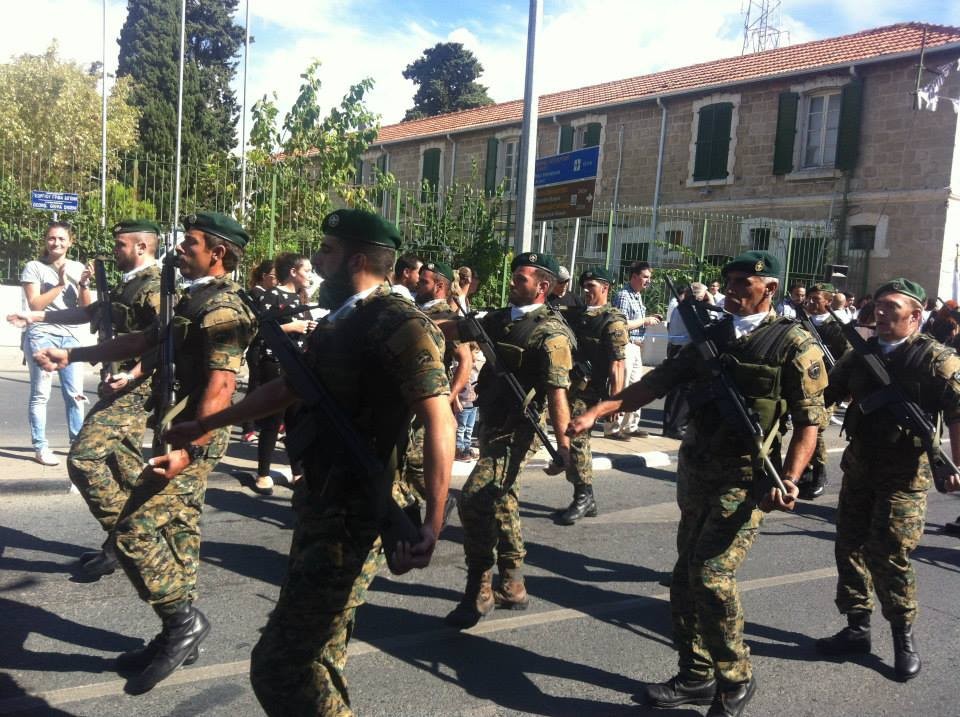
Now that the background is set up, it was on the 28th of October, 1940 that the Italian leader at the time, Benito Mussolini issued an ultimatum to Greece. Italian troops had by this stage moved into Albania, which is Greece's neighbour towards the north. With Greece being the next logical destination for the Italian advancement, Mussolini offered a choice (it wasn't really much of a choice) to Greece, that the Greeks would allow for the Italian to move in and occupy the country, and develop strategic posts for its war plan, in exchange for the protection from the Italians. Should the Greeks have agreed to this offer, the country would have had to obliged to the Italian rules and regulations, which in modern terms if very similar to that of colonisation or occupation.
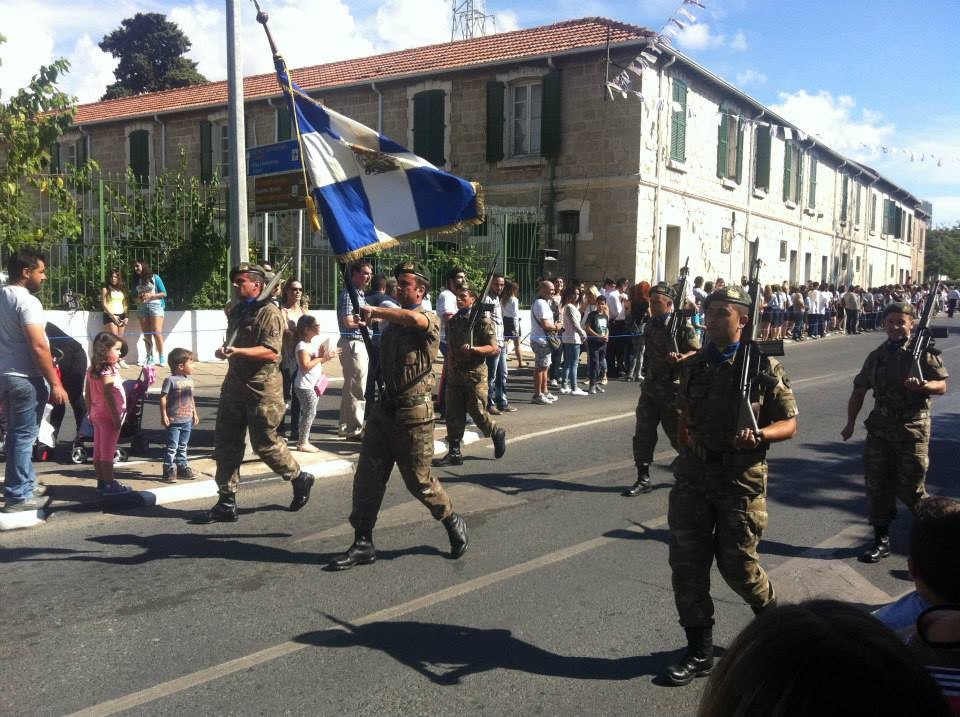
The Greeks responded with a no, which was ''ohi''. The response was firm and clear, and it was a straight up ''no''. The Greeks once again showed the whole world of its pride as well as its strong sense of unity and patriotism. You would be able to guess that the Italians didn't take this answer very well. They invaded Greece from their starting point in Albania, but sources have it that the Greeks were so resilient and strong that they managed to push back the Italian fire powers back to Albania in about four months. This defeat to Italy also marked as one of the first noted defeats of the Axis Powers on land. The victory of the Greeks set up for many more victories against the Axis Power throughout other parts of Europe, and it was this very event that led to German dictator, Adolf Hitler to praised the Greek by saying that "The Greek soldier, above all, fought with the most courage". Winston Churchill, a historical figure that really needs to introduction, famously claimed : "Hence, we will not say that the Greeks fight like heroes, but that heroes fight like Greeks. "
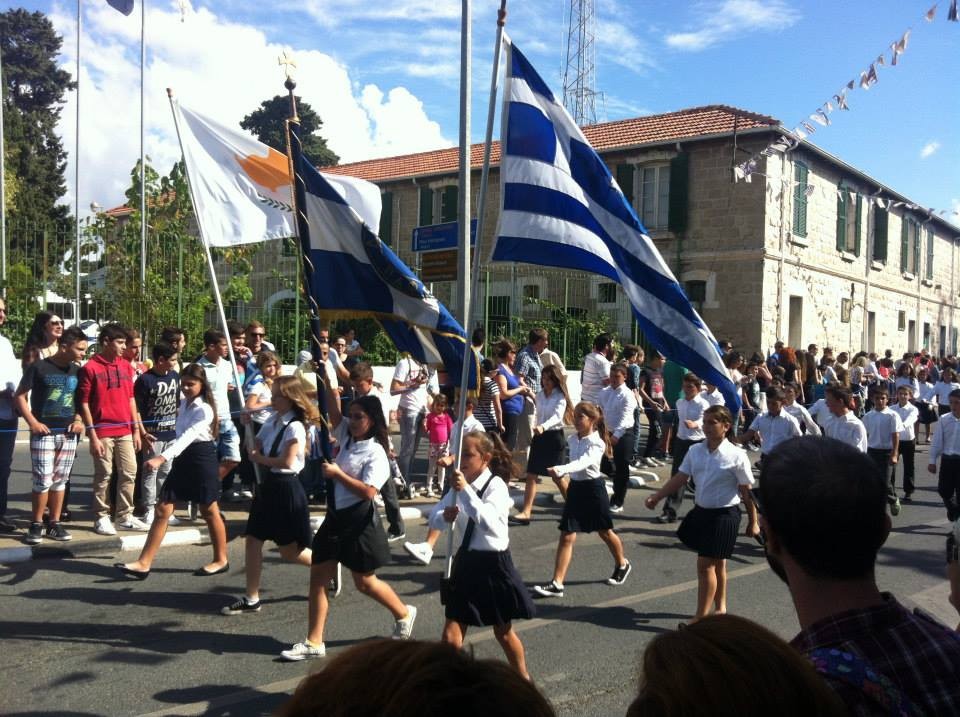
Enough of history from now, and let's now move into the parade that marked this very day in Greek history. The 28th of October is marked on the calendar of Greek people all over the world, which also extends to the island of Cyprus, which is divided in half with the Greek population on the southern part of the island, and the Turkish population on the northern side. This date is a public holiday and is celebrated with parades all across the country by both the military, former soldiers as well as school students. From a point of view of a tourist and that of a person not from this part of the world, I find the parade a fantastic symbol for unity and of course, also as important, it is a symbol for peace. The Greek Cypriots also played a role during the war times, as it had always been involved in regional conflicts, trades, and other elements of life, since way back when. We must understand that this area of the world is one of the oldest and most active in the history books, and it only amazes me to see how far we have all come together - although this leaves a lot of work to be done in other regions of the world.
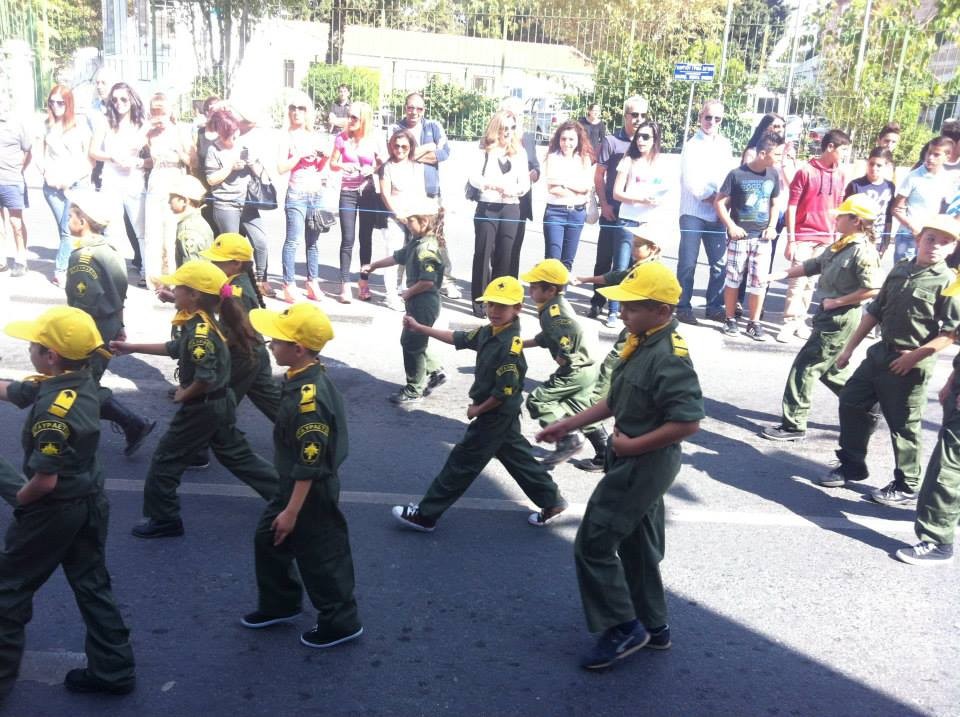
Anyhow, on a brighter side, the parade in Paphos will see its main streets in the town center close off for the military and student parades. This is also where my photos will comes in. For about a good hour or so, you will get to see various military units from air force to the navy to former soldiers united in their parades. The best way to get to the parade is to walk around and find a spot to view the display. This is because cars won't get you in very far and to be honest, you won't have a place to park. Also bring a lot of water with you since October in Cyprus is still hot, believe it or not! There won't be many stalls selling drinks at the event, or at least in Paphos.
The buildings as well as many cars on the road are decorated with Greek and Cypriot flags to mark this important day on the calendar. Many of the younger Greek Cypriots consider Greece to be a like a brother. The older generations have mixed views against this, but just an example, Greece won the UEFA European Football Championship in 2004 when the tournament was held in Portugal. Through a lot of hard work defensively, the Greek national team pulled off the most famous victory in this European footballing competition to this very day, as they went from merely another participant to the beating off the host country, Portugal, which at the time had ''legends'' of Portuguese football, notably Luis Figo, their key player as well as the then the captain, the teenage Cristiano Ronaldo who is now the king of football along side Lionel Messi. Other players on the Portuguese side included Ricardo Carvalho, Deco, Maniche, Rui Costa, Pauleta and Nuno Valente, and just to conclude this already impressive footballing squad, the team was managed by the 2002 World Cup winning coach of Brazil, Luiz Filipe Scolari.
The Greek side that was almost unknown to the footballing community back then were strong, united, and very disciplined. As a result, they were able to finish top two in the preliminary round with the host Portugal, Spain and Russia. They then went on to beat France by one goal, then knocking out the Czech Republic after a period of extra time. Their stellar performance was rewarded with the winner's trophy, which led the whole Greek side of Cyprus to go absolutely crazy. On the streets, people were screaming, cheering and celebrating. The cars on the roads were going mental and all your heard for the next 24 hours were car honking. This shows that the younger Greek Cypriot population love Greece, although they are two separate countries.
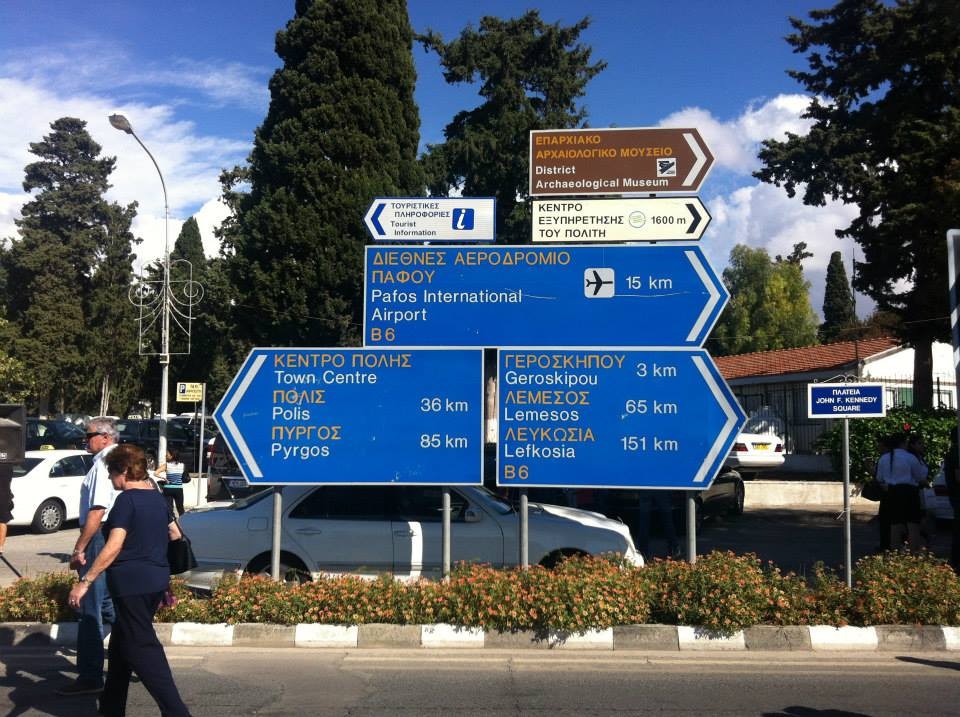
All in all, Ohi Day is fantastic day for everyone to come out and share this sense of unity. Regardless of where you are from, you can join in on the party and the celebration. After the parade, my mother and I walked up the streets to the have lunch at one of our favourite places in Paphos, Kourides Restaurant. I also wrote another post which specifically focuses on Kourides and their cuisine. If you are to go and witness this parade of Ohi Day, I would strongly recommend walking up the main road, pass the school, the bank and petrol station to the restaurant just at the corner. I am sure that this restaurant will not disappoint you. But really, I don't know of places in the area that would be open, especially on this special day celebrated throughout the island.
For more information on the history of this special day, I would recommend that you do extra research, with the website at the bottom from The Washington Oxi Day Foundation being a fantastic starting point. Bare in mind though, that this does not specifically connect to the role Cyprus had during the Second World War. I personally find that the history between Greece and Cyprus and I guess the recent history of the country up until its current issue with the Turkish land dispute, is best told from the local residents. And by this, I would mean from the grandfathers drinking coffee at a small kebab shop, and not the young adults you would meet in bars or the beach.
The Washington Oxi Day Foundation - Forgotten Facts about Greece in World War II
About Travel - Greece and Ochi Day Celebration in Greece and Cyprus
If you like the content of this post, or just want to check out some pictures that I take on my adventure, feel free to like and/or follow me on instagram at oat93, cheers!
Photo gallery
Content available in other languages
- Español: DESFILE DEL DÍA DE OHI | PAPHOS
- Français: DEFILE DU JOUR DU NON | PAPHOS
- Italiano: La parata nel giorno dell'Oxi a Paphos
- Polski: Parada w Dniu Ohi | Paphos
Rate and comment about this place!
Do you know Ohi Day Parade? Share your opinion about this place.



















